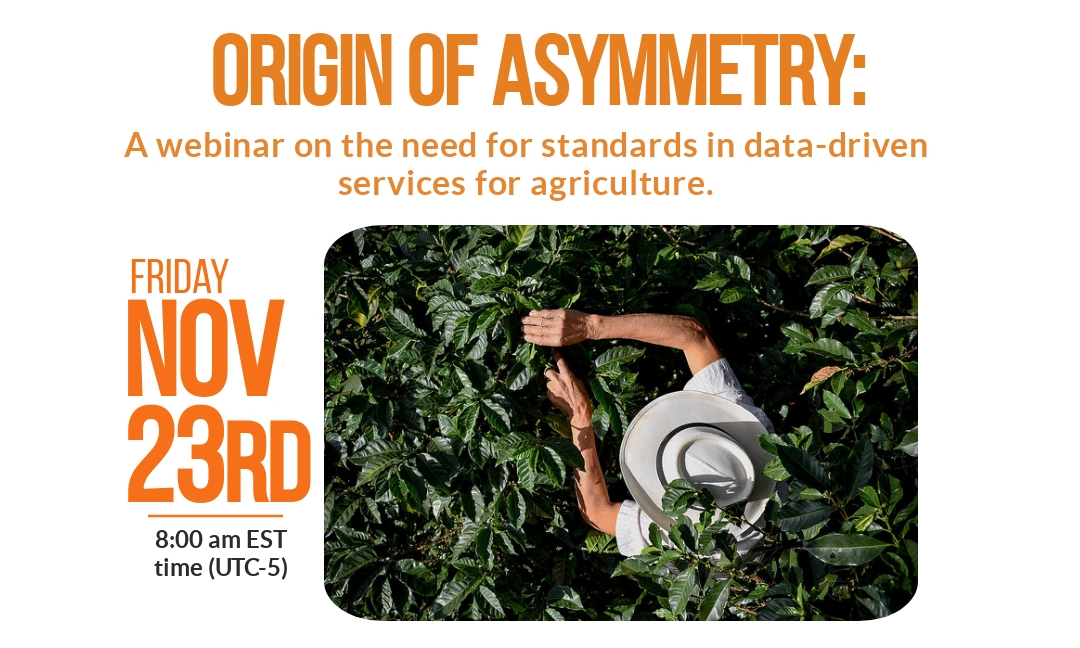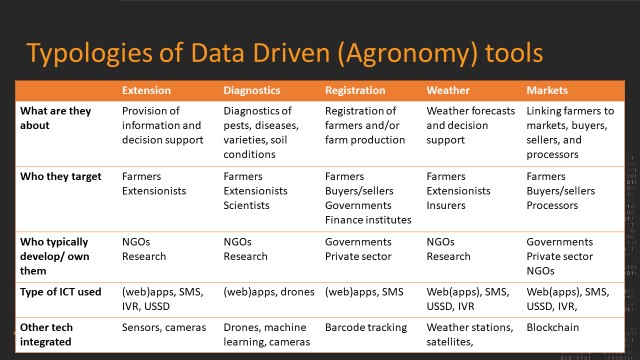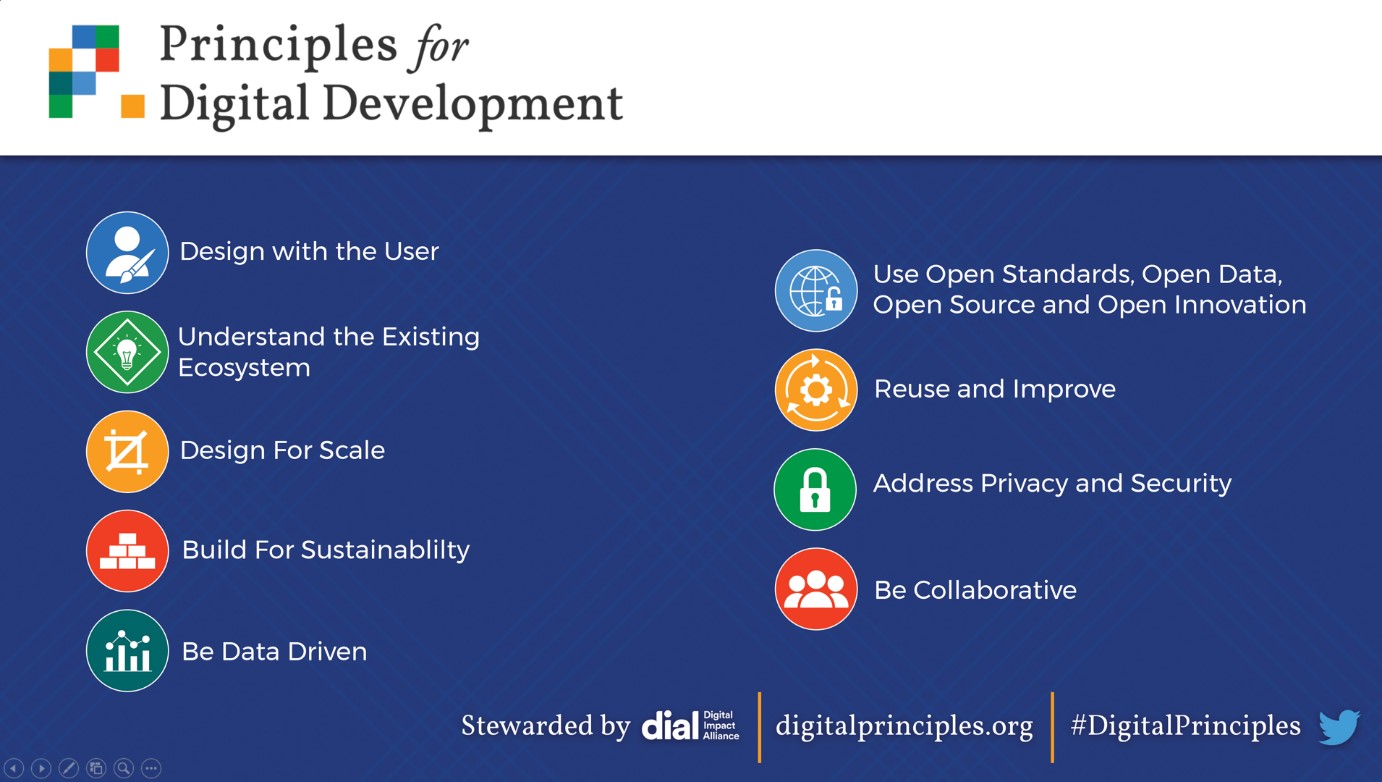Origin of asymmetry: a webinar on the need for standards in data-driven services for agriculture

In any market, asymmetry of information between providers and clients is a fertile ground for misunderstandings and eventually deception. In the emerging market of digital services for agriculture, the same rule applies. In addition, trust is critical to achieve adoption.
This is why the community of practice (CoP) on Data-driven Agronomy is organizing a global discussion on the need to establish standards in this emerging market.
Last Friday 23rd of November, the CoP hosted the webinar called “Origin of asymmetry: a webinar on the need for standards in data-driven services for agriculture” tweaking the title of Muse’s famous album and in reference to the issue of asymmetry of information in the emerging market of digital services for agriculture. You can watch the recording of the webinar here.
Three guest speakers walked the participants through different aspects of this problematic with outstanding presentations:
Mariëtte McCampbell set the stage by exploring the huge diversity of initiatives and proposing a scheme to assess their real impact based on a literature review she is carrying out. She introduced a typology of them to start organizing the complexity.

She also pointed out the common traits of those initiatives as well as some challenges they all face, on of the main ones being the sustainability of the initiatives and the lack of proofs of their real impact. Mariette concluded by stating that there is momentum to introduce tools that would help to distinguish between what work and what does not work, and therefore to prevent data-driven agronomy to fail to benefit farmers.
Carolyn Florey is in an interesting position to contribute to the Community of practice as she recently joined IRRI and the world of agriculture, but used to serve in several high-level positions related to digital health, a sector in which very similar issues have been tackled to improve the development of mobile health interventions.
The mHealth sector has carried out an extensive work in mapping the core challenges of the sector into the mHealth framework, building catalogues of interventions (Digital Health Atlas), and standardizing the reporting with the Evidence reporting assessment checklist.
Carolyn stressed that it is always important to follow the principles of digital development, created in 2012. https://digitalprinciples.org/

The “do no harm” principle widely used in health interventions should also be considered for farms: digital interventions should never leave farmers in a worse position than before adoption.
Actually, Michael Carter also referred to such principle when talking on the Minimum Quality Standards (MQS) project for index-based insurances. In the early stages of that project, the team would often run impact assessment and demonstrate that the existing contracts could not guarantee that farmers would be better positioned with the contract than without it.
Michael also made the point that much like hybrid maize seeds, the quality of an insurance contracts is a hidden trait for the smallholder farmer. This means that he/she has no means of evaluating the value of the product just looking at it. The same happens for digital services for agriculture as they encapsulate advanced technologies.
Michael mentioned the Clarke and Wren-Lewis economic theory explaining that in such context, unregulated markets do not results in the positive selection one would expect, but rather end up promoting bad contracts over good ones… Which is exactly what we would like to avoid by defining the required standards to guarantee a fair market for digital services for agriculture.
In a quick live poll, attendees agreed that for now we observe huge gaps between geographies and that the revolution seems to benefit some more than others.
Across the three presentations, the need for standards and their usefulness to improve the market efficiency was made clear by our guest speakers. The examples and experience they shared will be very useful for the CoP to move forward towards the definition of standards for digital services for agriculture. Early next year, the CoP plans to put together an inter- institutional working group that will follow up and organize the inputs for the community with the objective of writing a reference document.
The CoP core team would like to thank our three guest speakers, and all the attendees of the webinar. Also, special thanks to the TechChange team for their excellent technical support in the organization of this event.
